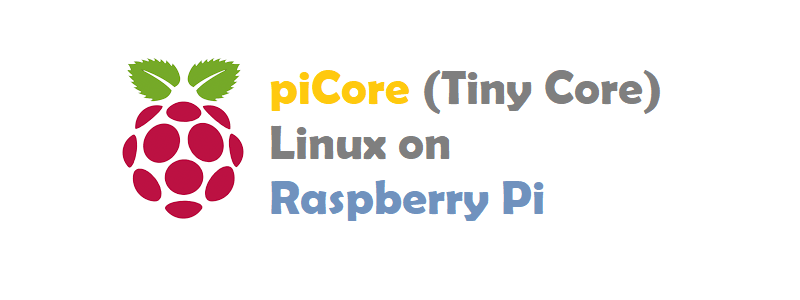Introduction
All the code is available in my github repo
I wanted a stable headless Spotify player for my living room. It has to run on a RaspberryPi and boot fast in order to turn it on only when needed with a switch. One of the solution would be Volumio or HifiBerry but they take too much time to boot. piCorePlayer is a good alternative but it has too much stuff installed by default and the Spotify extension is based on an outdated extension. I would use something based on piCore which is the port of Tiny Core Linux to the RaspberryPi. piCorePlayer is based on piCore. To stream spotify we will use librespot. There is no librespote package for Tiny Core Linux and therefore for piCore. Therefore we need to build our own Spotify package. The purpose is to gain stability and performance compared to the piCorePlayer version. For the OS we have two solutions:
- use piCorePlayer and remove everything that is not needed and install only my Spotify module;
- start from a bare piCore image.
I finally started from piCorePLayer because it configures my DAC out of the box. In the future I would migrate to a bare piCore version.
Requirements
To install something on TinyCore Linux we need to build a tcz extension. a tczextension is then mounted at boot as squashfs. This allows to fast boot.
Sources:
Build
Librespot must be cross-compiled and placed in the sbin folder as librespot. Don’t forget to chmod +x librespot before creating the tcz extension.
Cross Compilation
Cross compilation of Librespot for RaspberryPi on Linux (raspbian, TinyCoreLinux, PiCore Linux…) You must be on Debian 11 minimum for the cross compilation to work(because of libs version dependencies)
Install cross-compilation tools
sudo apt install git curl pkg-config build-essential gcc-arm-linux-gnueabihf lib32stdc++6 libstdc++6:armhf
Install RUST
curl --proto '=https' --tlsv1.2 -sSf https://sh.rustup.rs | sh
source $HOME/.cargo/env
Install Libraries
Create a folder where you will work.
cd
mkdir -p pcp-librespot/downloads/
cd pcp-librespot/downloads
We need to download arm gnueabihf version of needed libraries. We search for armhf versions in the repos. Download only the lib you need for your backend:
- alsa and alsa dev for alsa backend
- portaudio and portaudio dev for portaudio backend
- libjack and libjack dev for jack backend (default in librespot)
| Lib | Source | Name of package |
|---|---|---|
| portaudio19 | http://ftp.fr.debian.org/debian/pool/main/p/portaudio19/ | libportaudio2_19.6.0-1.1_armhf.deb |
| portaudio19 dev | http://ftp.fr.debian.org/debian/pool/main/p/portaudio19/ | portaudio19-dev_19.6.0-1+deb10u1_armhf.deb or portaudio19-dev_19.6.0-1.1_armhf.deb |
| alsa | http://ftp.fr.debian.org/debian/pool/main/a/alsa-lib/ | libasound2_1.2.4-1.1_armhf.deb |
| alsa dev | http://ftp.fr.debian.org/debian/pool/main/a/alsa-lib/ | libasound2-dev_1.2.4-1.1_armhf.deb |
| libjack | http://ftp.fr.debian.org/debian/pool/main/j/jackd2/ | libjack-jackd2-0_1.9.17~dfsg-1_armhf.deb |
| libjack dev | http://ftp.fr.debian.org/debian/pool/main/j/jackd2/ | libjack-jackd2-dev_1.9.17~dfsg-1_armhf.deb |
We also need the armhf libc
wget ftp.fr.debian.org/debian/pool/main/g/gcc-10/libstdc++6_10.2.1-6_armhf.deb
environment
If you still in downloads folder go back with cd .. else cd pcp-librespot
We need to configure the environment with a sysroot where we put all the libs needed for cross-compilation as librespot for arm can’t use x86 libs.
mkdir sysroot
Go where you’ve download the libs and decompress packages in pcp-librespot/sysroot folder.
for a in $(ls $HOME/pcp-librespot/downloads);do ar p $a data.tar.xz | tar -xv -J -C $HOME/pcp-librespot/sysroot;done
build
get the librespot sources
git clone https://github.com/librespot-org/librespot.git
Configure rust for cross-compilation
echo "arm-linux-gnueabihf-gcc --sysroot $HOME/pcp-librespot/sysroot \"\$@\"" >> ./cargo/bin/gcc-sysroot
chmod +x .cargo/bin/gcc-sysroot
echo <EOF>> $HOME/.cargo/config
[build]
# Set default build target to armv7hf
target = "armv7-unknown-linux-gnueabihf"
# Configure linker for your target
[target.armv7-unknown-linux-gnueabihf]
linker = "gcc-sysroot"
EOF
export PKG_CONFIG_ALLOW_CROSS=1
export PKG_CONFIG_SYSROOT_DIR=$HOME/pcp-librespot/sysroot/
export PKG_CONFIG_DIR
export PKG_CONFIG_PATH=$HOME/pcp-librespot/sysroot/usr/lib/arm-linux-gnueabihf/pkgconfig/
configure librespot build for cross-compilation
cd librespot
rustup target add armv7-unknown-linux-gnueabihf
rustup component add rustfmt
to build librespot with alsa-backend; this is what you want for raspbian and piCore Player
cargo build --target=armv7-unknown-linux-gnueabihf --no-default-features --features "alsa-backend"
if you need portaudio backend do this instead
cargo build --target=armv7-unknown-linux-gnueabihf --no-default-features --features "portaudio-backend"
you might need to specify -L "/usr/lib/arm-linux-gnueabihf" for building.
Create a folder to build the package and copy the binary into the package folder
cd $HOME/pcp-librespot
mkdir -p package/usr/local/sbin/
cp target/armv7-unknown-linux-gnueabihf/release/librespot package/usr/local/sbin/
chmod +x package/usr/local/sbin/librespot
Now we can buid a Tiny Core package: an extension.
create extension to be installed
create the extension
mksquashfs package pcp-librespot.tcz
Installation
Install librespot extension on pcp
send it on your RaspberryPi running piCorePlayer:
scp pcp-librespot.tcz tc@pcp.local:
ssh tc@pcp.local
mv -v pcp-librespot.tcz /etc/sysconfig/tcedir/optional
activate start up on boot
echo pcp-librespot.tcz >> /etc/sysconfig/tcedir/onboot.lst
echo "/usr/local/etc/init.d/librespot start" >> /opt/bootlocal.sh
pcp bu
reboot or launch the extension with
tce-load -i pcp-librespot
And that’s it. A fast booting Linux running Librespot to stream Spotify on your speaker.
Comments
To give feedback, send an email to percevalsa [at] outlook dot com.
